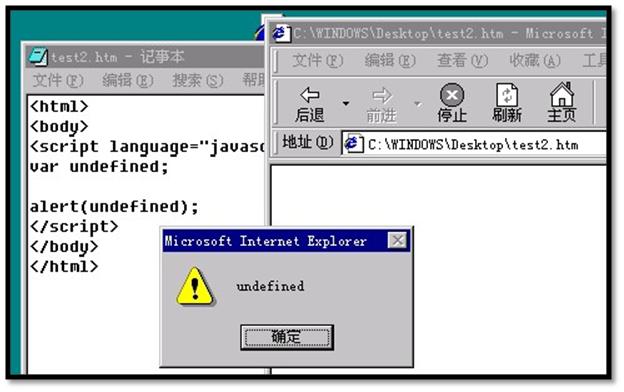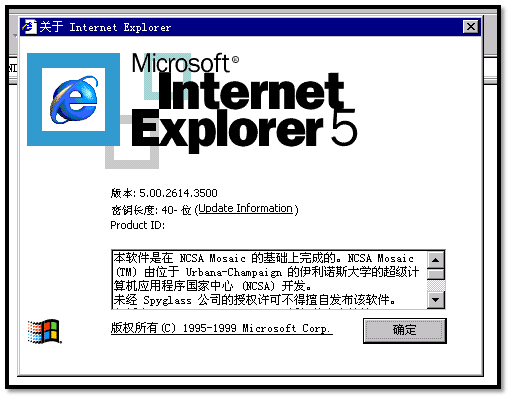Home >Web Front-end >JS Tutorial >Write better JavaScript programs - undefined (Part 2)_javascript skills
Write better JavaScript programs - undefined (Part 2)_javascript skills
- WBOYOriginal
- 2016-05-16 18:41:231039browse
写在前面的依然是消歧义声明:本文中JavaScript是指一般意义上的JavaScript,并不只限定“自称是JavaScript”的运行环境;“全局变量”和“全局对象的属性”是指同样的东西,只是因为要配合上下文才用了不同的说法,正文中我就不再另外解释了;“声明”指通过“var”语句声明变量和/或对函数及其签名的定义;“变量”指通过“var”语句声明过或者在函数体中试图访问的命名参数;“undefined”指名为“undefined”的值(全局或本地变量),而“未定义”指type(...) == “undefined”的概念值;“output”是向我们显示传入参数的函数,其实就是“alert”的同类。
首先介绍的是和void(0)具有异曲同工之妙的一种办法,我们知道在JavaScript中尝试访问任何一个“没有返回值”的函数的执行结果,都会得到“未定义”这个概念值,所以我们可以这样做:
myVar = function(){}();
这个方法的原理是创建一个空函数,并且获取其(根本不存在的)返回值。很明显,我们会得到“未定义”这个概念值,这个原理是和void(0)一样的。
需要特别注意的是,只有当function关键字不在语句之首的时候,才可以使用这种调用方式;如果需要直接调用一个匿名函数,应该这样做:
(function(){
// code here
})();
假如我们不想污染全局作用域,我们就可以用这种方式来创造一个闭包——很多现有的JavaScript库就是这样做的。
这种办法是在不了解void(0)的执行效果的情况下诞生的,既然我们知道void(0),也就不需要这种办法了。
第二种不常见的办法是访问window.undefined,就像下边这样:
output(myVar === window.undefined);
myVar = window.undefined;
这种办法的原理是:
如果JavaScript的运行环境预定义了undefined这一值,window.undefined就可以直接访问到;
如果没有预先定义undefined这一值,window.undefined就会返回“未定义”这一概念值——还是我们想要的东西。
访问形式从“全局变量”变成“属性”以后,脚本引擎就不会认为这是一个意外操作了,因此代码可以正确执行。
然而这种办法还是存在不足:
undefined在所有的JavaScript引擎中都不是保留字,也就是说它是可以被污染的,这会影响我们的程序的运行效果;
直接访问全局对象的属性效率是很差的,应该避免这么做。
因此,接下来就要介绍我所见过的最为有趣的办法——在本地声明undefined变量!
它的做法是这样的:
function myFunc(){
var undefined;
// some code here
output(myVar === undefined);
myVar = undefined;
}
说到这里我要提一下,有的人对“早期的浏览器上没有undefined”这一说法有不同的理解,认为上面这样的做法是行不通的。
而我认为这种观点是不对的,在我的印象中(大约是2003年),IE5虽然没有预定义undefined,但并不影响我们的不指派声明。
不过毕竟是很多年前的事情,记忆模糊,为了避免想当然造成的错误,我特地装了Windows 98来实验一下: 

上面两幅是用了QQ屏幕截取 ,不知道为什么变成了JPG,下边这幅是用OneNote截取的。

As explained in the previous article, in JavaScript, if you try to read a variable that has not been predefined or declared, a "does not exist (undefined)" exception will be thrown. Therefore, on early browsers, if you directly Operations accessing undefined may fail.
This phenomenon (causing exceptions) may be intentionally designed to facilitate troubleshooting; and for declared variables, even if they are not assigned a value, they will not cause an exception when reading - after declaration Indicates that the developer is sure there is "this thing".
The above method of declaring local variables undefined in the function scope not only solves the problem of exceptions caused by referencing undeclared variables, but also avoids the impact of global variable pollution, and replaces void(0) This little trick, which at first glance seems to have no meaning, not only does not cause hidden dangers of invisible spelling errors, but also improves computing efficiency - it is really a great trick!
So after learning so much, I found that the method introduced at the end is really the first choice for home travel and killing people
If someone asks: "How should I use undefined?" We can answer now: Just use it. !
We have finally reached the end. Some people may not be able to help but ask: Why do all my code examples in this series use "strict equality" of three equal signs for comparison? Is there anything wrong with the ordinary "equality" of two equal signs?
This is what the next part of this series will explain: the applicable occasions of undefined and its various equivalent forms.
Related articles
See more- An in-depth analysis of the Bootstrap list group component
- Detailed explanation of JavaScript function currying
- Complete example of JS password generation and strength detection (with demo source code download)
- Angularjs integrates WeChat UI (weui)
- How to quickly switch between Traditional Chinese and Simplified Chinese with JavaScript and the trick for websites to support switching between Simplified and Traditional Chinese_javascript skills

